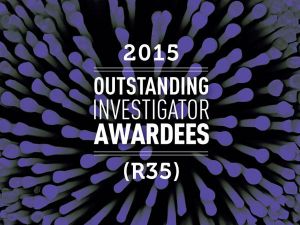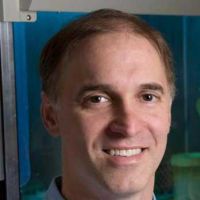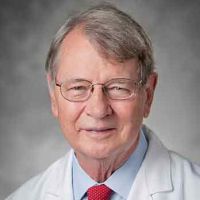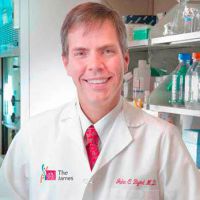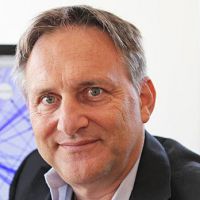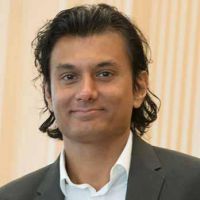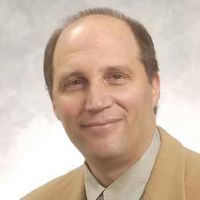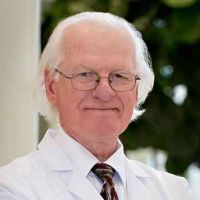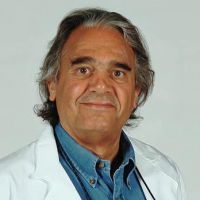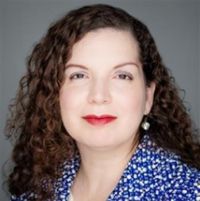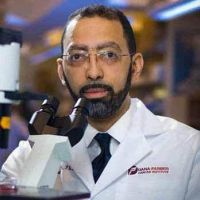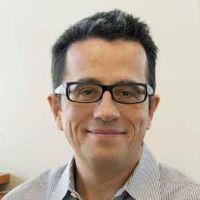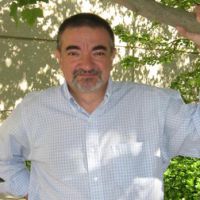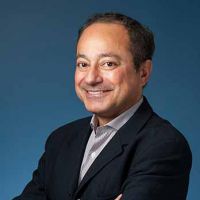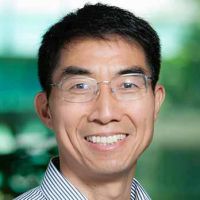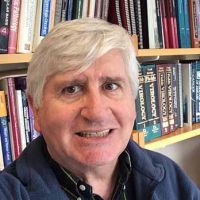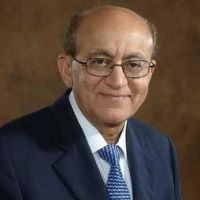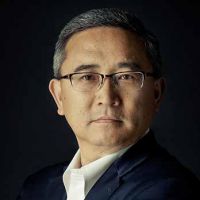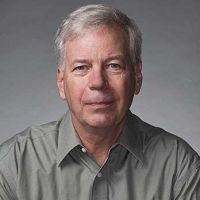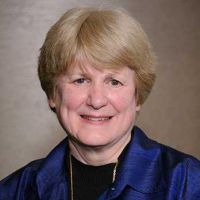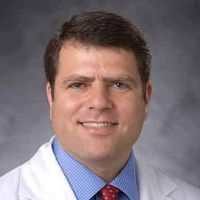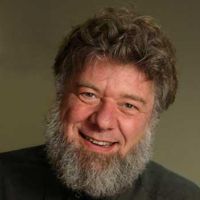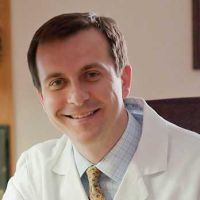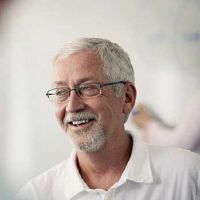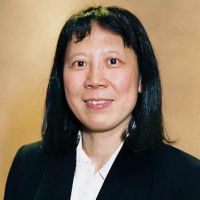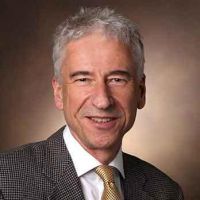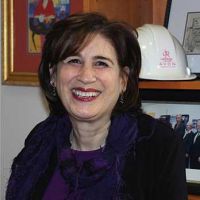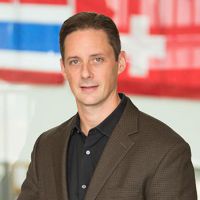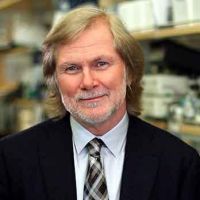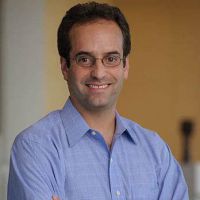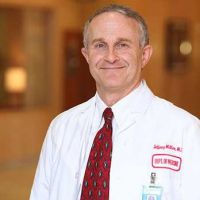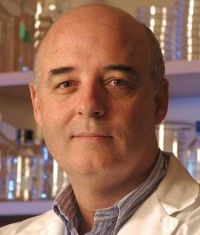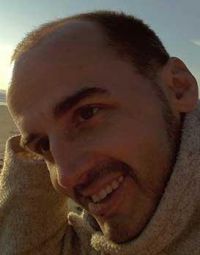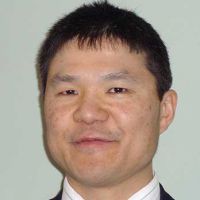2015 Outstanding Investigator Award Recipients
First awarded in 2015, NCI’s Outstanding Investigator Award supports accomplished leaders in cancer research, who are providing significant contributions toward understanding cancer and developing applications that may lead to a breakthrough in biomedical, behavioral, or clinical cancer research. Previous recipients are listed below.
|
|
- Steven Artandi, MD, PhD
- Title: Professor of Medicine (Hematology) and of Biochemistry
- Institution: Stanford University
- Research: Address the target cell populations from which cancers emerge – the cell-of-origin – and determine how these early beginnings are linked to one of the most fundamental properties of cancer cells, the acquisition of immortal proliferative properties.
|
|
|
- Laura D. Attardi, PhD
- Title: Professor, Departments of Radiation Oncology and Genetics, School of Medicine
- Institution: Stanford University
- Research: Deconstruct the transcriptional programs through which wild-type p53 suppresses cancer and through which missense mutant p53 exerts GOF effects to promote cancer; and use integrated genetic, genomic, cell biological and biochemical approaches to define the p53 transcriptional programs critical for p53-mediated suppression of pancreatic cancer.
|
|
|
- Albert S. Baldwin, PhD
- Title: Distinguished Professor of Biology and Associate Director of the Lineberger Comprehensive Cancer Center
- Institution: University of North Carolina at Chapel Hill
- Research: To dissect signaling mechanisms whereby IKK and NF-kB (canonical and non- canonical) promote the phenotype of cancer. Additionally, mechanisms whereby IKK, independent of NF-kB, promote the oncogenic phenotype will be addressed.
|
|
|
- Darell Bigner, MD, PhD
- Title: Director, The Preston Robert Tisch Brain Tumor Center at Duke
- Institution: Duke University
- Research: Focus on oncolytic poliovirus, immunotoxin, and checkpoint inhibitor therapy of gliomas. Intended outcome will represent paradigm shifts in glioblastoma multiforme cells (GBM) treatment resulting in significant increases in high quality of life and overall survival.
|
|
|
- John C. Byrd, MD
- Title: Professor of Medicine and D. Warren Brown Chair of Leukemia Research
- Institution: Ohio State University
- Research: Focus on basic and translational biologic questions to develop novel immunologic and targeted therapies for acute myeloid leukemia and chronic lymphocytic leukemia.
|
|
|
- Andrea Califano, Dr.
- Title: Clyde and Helen Wu Professor of Chemical Systems Biology
- Institution: Columbia University Medical Center
- Research: Develop a novel methodological framework integrating both experimental and computational approaches to systematically elucidate the mechanisms by which tumor heterogeneity drives tumor progression and emergence of drug resistance.
|
|
|
- Navdeep Chandel, PhD
- Title: David W. Cugell, MD, Professor of Medicine and Cell Biology
- Institution: Northwestern University Feinberg School of Medicine
- Research: Explore the mechanisms by which mitochondrial metabolism and reactive oxygen species are required for tumorigenesis and identify mitochondrial and redox enzymes that can be therapeutically targeted.
|
|
|
- Robert S. Chapkin, PhD
- Title: Distinguished Professor and Deputy Director of the Center for Translational Environmental Health Research
- Institution: Texas A & M University
- Research: Focus on cancer prevention strategies to delineate the nuclear and plasma membrane targeted mechanisms modulating stem cell responses to exogenous (diet-derived) and endogenous (gut microbial) bioactive agents.
|
|
|
- Simon R. Cherry, PhD
- Title: Distinguished Professor, Departments of Biomedical Engineering and Radiology
- Institution: University of California, Davis
- Research: Focus on discovering new opportunities for cancer imaging and cancer therapy based on radiation and photonics science.
|
|
|
- Daniel William Cramer, MD, ScD
- Title: Professor, Harvard Medical School
- Institution: Brigham and Women’s Hospital
- Research: Study novel assays and conduct functional studies to advance understanding of mucin-immune cell interactions in ovarian cancer revealed by observations that mucins, like CA125, bind to leukocyte subsets and affect tumor-immune response and that their expression, as well as occurrence of anti-mucin antibodies, depends on tumor features and their risk factors, including obesity, smoking, and reproductive events.
|
|
|
- Craig Crews, PhD
- Title: Lewis B. Cullman Professor of Molecular, Cellular, and Developmental Biology
- Institution: Yale University
- Research: Contribute toward developing the new field of `Controlled Proteostasis’and help develop the Proteolysis Targeting Chimerae (PROTACs) technology further to target truly undruggable proteins that are key oncogenic drivers.
|
|
|
- Carlo Croce, MD
- Title: Chair of the Department of Molecular Virology, Immunology and Medical Genetics
- Institution: Ohio State University Medical Center
- Research: Focus on the identification of genetic and genomic alterations that cause human cancer in order to develop novel targeted treatments for different human tumors.
|
|
|
- Michael Fiore, MD, PhD, MPH, MBA
- Title: Professor of Medicine
- Institution: University of Wisconsin-Madison
- Research: Focus on Electronic Health Records (EHR) and using groundbreaking research methods to re-engineer healthcare delivery systems to efficiently organize and deliver state-of-the-art treatment to smokers visiting primary care settings.
|
|
|
- Elsa R. Flores, Ph.D.
- Title: Chair and Senior Member, Molecular Oncology; Program Leader, Cancer Biology and Evolution
- Institution: Moffitt Cancer Center
- Research: Despite long-standing knowledge that the p53 function is frequently altered in cancer, p53 has persisted as an undruggable target because of its function as a transcription factor and because it lacks an enzymatic activity that can be readily inhibited. To identify novel ways of targeting p53 in cancer, understanding the interrelated biological functions of the p53 family is essential. By further evaluating existing mouse models and several novel high throughput modalities, we may better understand the biological functions of non-coding RNA regulated by the p53 family in cancer metastasis and tumor metabolism.
|
|
|
- Levi Garraway, MD, PhD
- Title: Associate Professor of Medicine, Harvard Medical School
- Institution: Dana-Farber Cancer Institute
- Research: Hypothesis that the spectrum of resistance mechanisms for any given cancer therapeutic modality could coalesce onto a much smaller set of critical downstream effect or “nodes.” Focus on discerning the mechanisms operating within these “points of coalescence” to yield new insights into oncogenic dependencies and illuminate guiding principles for the design of novel therapeutic combinations.
|
|
|
- Jean Gautier, PhD
- Title: Professor of Genetics and Development
- Institution: Columbia University Medical Center
- Research: Build a map of protein-protein interactions for repair factors common to multiple repair pathways and identify protein-protein interactions that are specifically enhanced or reduced following treatment. These differentially regulated modules will identify potential vulnerabilities in the DNA repair networks of cancer cells and will open the possibility for precise, targeted therapies.
|
|
|
- Amato Giaccia, PhD
- Title: Professor of Radiation Oncology
- Institution: Stanford University
- Research: Explore the molecular mechanisms governing lipid homeostasis in cancer, characterize their contribution to tumorigenesis and identify ways that they can be therapeutically targeted in solid tumors and determine how to best exploit them therapeutically.
|
|
|
- Filippo G. Giancotti, M.D., Ph.D.
- Title: Professor, Department of Cancer Biology, and Scientific Director, David H. Koch Center for Applied Research of Genitourinary Cancers.
- Institution: The University of Texas MD Anderson Cancer Center
- Research: Deconstruct the signaling pathways and transcriptional programs that mediate metastatic dormancy and reactivation of breast, prostate and pancreatic cancer through genetic screening and analysis in mice; define the metastatic niches and the signals they generate in different tumor types and target organs; identify potential targets for prevention of metastatic reactivation and combination therapy of metastatic disease.
|
|
|
- Kun-Liang Guan, PhD
- Title: Distinguished Professor in the Department of Pharmacology
- Institution: University of California, San Diego
- Research: Obtain a comprehensive molecular understanding of the mTORC1 and Hippo pathways under normal physiological conditions and elucidate how dysregulation of these pathways contributes to tumorigenesis.
|
|
|
- Peter Howley, MD
- Title: Shattuck Professor of Pathological Anatomy
- Institution: Harvard Medical School
- Research: Translate what we know and continue to learn about papillomavirus-host cell interactions to identify therapeutic targets for treating HPV-positive cancers and precancers.
|
|
|
- Stephen Hursting, PhD, MPH
- Title: Professor in the Department of Nutrition and Nutrition Research Institute; Director of the Division of Nutritional Biochemistry; member of the UNC Lineberger Comprehensive Cancer Center
- Institution: University of North Carolina at Chapel Hill
- Research: Utilize a transdisciplinary approach combining well-characterized preclinical models with expertise in nutrition, metabolism and molecular biology in partnership with strong translational collaborations to identify new biomarkers, develop effective interventions to break obesity-cancer links, and reduce the burden of obesity-associated cancer.
|
|
|
- Rakesh K. Jain, PhD
- Title: A. W. Cook Professor of Tumor Biology (Radiation Oncology) and Director, Edwin L. Steele Laboratory for Tumor Biology
- Institution: Massachusetts General Hospital and Harvard Medical School
- Research: Dissect the microenvironment of pediatric brain tumors with the goal of improving existing therapies and developing new ones – using powerful, non-invasive, high-resolution imaging technologies.
|
|
|
- Jae U. Jung, PhD
- Title: Chair of Department of Molecular Microbiology and Immunology
- Institution: University of Southern California
- Research: Focus on understanding the molecular mechanisms of oncogenesis induced by Kaposi’s sarcoma associated herpesvirus, investigating viral gene expression, epigenetic regulation, immune evasion, persistence, pathogenesis, and animal model development.
|
|
|
- Thomas Kensler, PhD
- Title: Professor in the Department of Pharmacology and Chemical Biology
- Institution: University of Pittsburgh
- Research: Focus on chemoprevention, which may offer practical opportunities to reduce risks associated with “unavoidable” or largely intractable exposures, using natural products that target the Nrf2 cytoprotective pathway.
|
|
|
- Mary-Claire King, PhD
- Title: Professor of Genome Sciences and of Medicine (Medical Genetics)
- Institution: University of Washington
- Research: Discover new mutational mechanisms and new genes in extended kindreds severely affected by breast or ovarian cancer with normal sequences of all known breast and ovarian cancer genes.
|
|
|
- David G. Kirsch MD, PhD
- Title: Professor, Departments of Radiation Oncology, and Pharmacology and Cancer Biology
- Institution: Duke University
- Research: Improve the therapeutic ratio of radiation therapy by using next-generation mouse genetics and sophisticated small animal irradiation to dissect mechanisms of tumor response and normal tissue injury from radiotherapy.
|
|
|
- Hartmut Land, PhD
- Title: Chairman, Department of Biomedical Genetics, Director of Research and Co-Director, Wilmot Cancer Institute
- Institution: University of Rochester Medical Center
- Research: Explore the hypothesis that `cooperation response genes’ (CRGs) are critical to sustaining core features of a malignant phenotype shared between diverse cancers; use genetically tractable in vivo and in vitro models in combination with genomic RNA expression and bioinformatics analyses to identify key regulatory pathways to identify key regulatory pathways and circuits related to CRG activity that control cancer cell homeostasis.
|
|
|
- Caryn Lerman, PhD
- Title: Mary W. Calkins Professor of Psychiatry
- Deputy Director, Abramson Cancer Center
- Institution: University of Pennsylvania
- Research: Merge concepts and tools from the fields of cognitive neuroscience and behavioral science to develop and evaluate novel neuroscience-based interventions to promote sustainable behavior change for cancer prevention.
|
|
|
- Maciej Lesniak, MD
- Title: Professor and Chair, Department of Neurological Surgery, Northwestern University Feinberg School of Medicine
- Institution: Northwestern University
- Research: Focus on therapeutic targeting of malignant glioma stem cells, guided by the hypothesis that novel non-viral gene therapies can be designed to arrest GSC fate in gliomas by suppressing the master neurodevelopmental transcriptional factors that control GSC phenotypes.
|
|
|
- Timothy Ley, MD
- Title: Lewis T. and Rosalind B. Apple Professor of Oncology in the Department of Medicine
- Institution: Washington University in St. Louis
- Research: Explore the hypothesis that a complete understanding of the consequences of initiating mutations is required to fully understand acute myeloid leukemia (AML) pathogenesis. Focus on the therapeutic approaches against initiating mutations with the potential of providing long-term benefits for AML patients.
|
|
|
- Xihong Lin, PhD
- Title: Chair and Henry Pickering Walcott Professor of Biostatistics, and Professor of Statistics
- Institution: Harvard T.H. Chan School of Public Health and Harvard Faculty of Arts and Sciences
- Research: Develop and apply statistical and computational methods for analysis of whole genome sequencing association studies, investigation of gene-environment interactions, integrative analysis, risk prediction using genetic, genomic and environmental data, and analysis of large administrative databases, to advance genetic and genomic epidemiology, precision prevention, and precision medicine for cancer.
|
|
|
- Ian Macara, PhD
- Title: Chair of the Cell & Developmental Biology Department
- Institution: Vanderbilt University
- Research: Focus on understanding how cell context determines phenotype, and determine the roles of mitotic spindle mis-orientation in cancer initiation, tumor suppression by myoepithelial cells, and the subversion of mechanical tension signaling by breast cancer cells.
|
|
|
- Jeanne Mandelblatt, MD, MPH
- Title: Associate Director for Population Sciences at the Lombardi Comprehensive Cancer Center
- Institution: Georgetown University
- Research: Use a bio-behavioral framework to conduct population sciences research at the intersection of cancer and aging. Focus on shifting the paradigms of research and care for the growing older population; determine whether biological age markers can identify survivors at greatest risk for functional declines; inform future intervention trials; and expand the limited number of cancer and aging researchers.
|
|
|
- Brendan D. Manning, PhD
- Title: Professor Genetics and Complex Diseases
- Institution: Harvard School of Public Health
- Research: Defining the wiring and functions of the PI3K-mTOR signaling network, with a focus on the critical role of this network in influencing the sensitivity and resistance of tumors to targeted cancer therapies and in tumor metabolism.
|
|
|
- Frank McCormick, PhD, FRS, DSc (Hon)
- Title: Professor Emeritus, UCSF Helen Diller Family Comprehensive Cancer Center
- Institution: University of California, San Francisco
- Research: Analyze how GAPs such as the NF1 protein are regulated and how un-regulated Ras proteins cause oncogenic transformation; use engineered isogenic cells, CRISPR technology and biochemical approaches to address these questions.
|
|
|
- Joshua Mendell, MD, PhD
- Title: Professor in the Molecular Biology Department
- Institution: University of Texas Southwestern Medical Center
- Research: Focus on the analysis of miRNA functions in normal physiology and cancer in vivo, investigation of the regulation of miRNA processing in normal development and tumorigenesis, elucidation of lncRNA functions in normal physiology and cancer and application of CRISPR-based genomic editing to illuminate noncoding RNA functions in cells and animals and to discover and validate novel regulators of malignancy-associated phenotypes.
|
|
|
- Matthew Meyerson, MD, PhD
- Title: Professor of Pathology
- Institution: Dana-Farber Cancer Institute
- Research: Aim to understand the mechanism of how significant alterations in the DNA of lung cancers, such as loss or gain of chromosomes, genetic mutations, and genomic amplification cause the disease. Insights are aimed at uncovering new therapeutic approaches to combat lung cancer.
|
|
|
- Jeffrey Miller, MD
- Title: Deputy Director, Masonic Cancer Center
- Institution: Masonic Cancer Center, University of Minnesota
- Research: Develop strategies to enhance the anti-tumor activity of endogenous Natural Killer (NK) cells in patients with solid tumor malignancies; and develop “off the shelf” reagents to activate NK cells, overcome inhibitory receptor signaling, and target them to specific tumor antigens.
|
|
|
- Patrick S. Moore, MD, MPH
- Title: Distinguished and American Cancer Society Professor, Director, Cancer Virology Program
- Institution: University of Pittsburgh
- Research: Find new ways to discover human cancer viruses and to eliminate viruses as potential causes for cancers that actually do not have a viral etiology. Investigate two cancer viruses already discovered by our lab (KSHV and MCV) and use them as models to understand fundamental principles in cancer research.
|
|
|
- Markus Müschen, MD-PhD
- Title: Professor, Department of Laboratory Medicine; Co-Leader, Hematological Malignancies Program UCSF Helen Diller Family Comprehensive Cancer Center
- Institution: University of California San Francisco
- Research: Focus on mechanisms of drug-resistance, oncogenic B cell receptor signaling and clonal evolution in B-lymphoid malignancies. To validate B cell-specific vulnerabilities as potential therapeutic targets in B cell-lineage leukemia and lymphoma.
|
|
|
- Shuji Ogino, MD, PhD, MS
- Title: Professor of Pathology, and Professor in the Department of Epidemiology
- Institution: Dana-Farber Cancer Institute
- Research: Conduct molecular pathological epidemiology (MPE) research on colorectal cancer omics, intratumor heterogeneity and immunity, to gain insights on roles of environmental, diet, lifestyle and genetic factors; and accelerate transdisciplinary integration to develop new research frameworks, analysis desig
|
